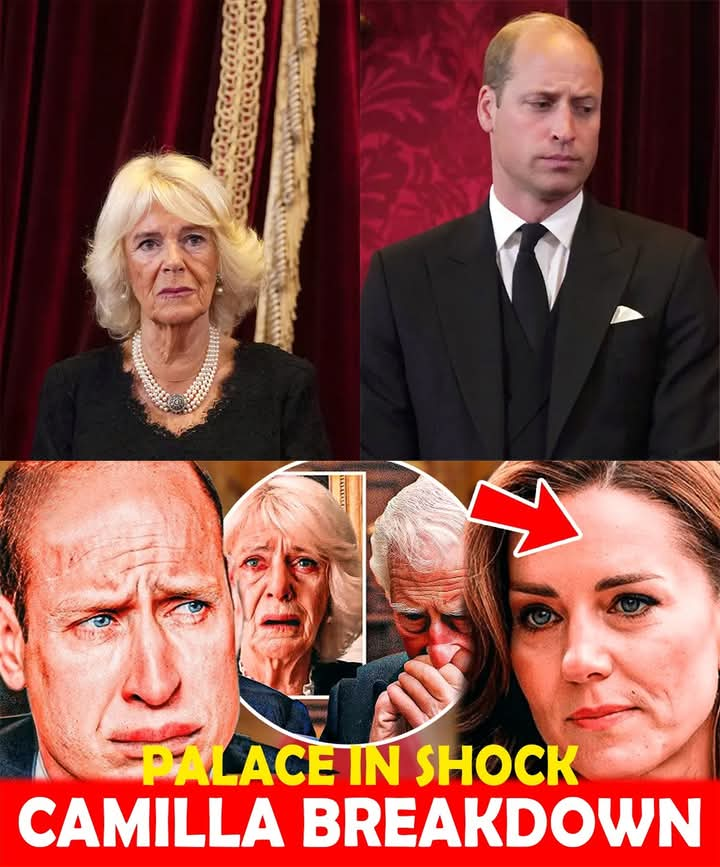NFL
END GAME! King Charles In Turmoil As He Won’t Accept William’s RUDE Decision For The Wales The British royal family has long been a beacon of tradition, unity, and resilience, but recent developments suggest that tensions within the House of Windsor are simmering beneath the surface.

END GAME! King Charles In Turmoil As He Won’t Accept William’s RUDE Decision For The Wales
The British royal family has long been a beacon of tradition, unity, and resilience, but recent developments suggest that tensions within the House of Windsor are simmering beneath the surface.
King Charles finds himself at odds with Prince William’s firm decision concerning the future of the Wales family—a choice that has raised eyebrows within royal circles and drawn criticism for its perceived harshness.
A Heated Disagreement Between Father and Son
The conflict centers around Prince William’s refusal to allow Tom, a figure whose identity is yet to be fully confirmed, access to the palace. While this decision might seem trivial on the surface, insiders suggest it reflects a broader issue regarding William’s vision for the monarchy and King Charles’s desire to preserve harmony.
The Incident at the Palace Gates
Reports reveal that when Tom arrived at the palace gates, he was allegedly turned away—a decision insiders claim was driven by William’s calculated approach to safeguarding the royal family’s image. The move, perceived by some as “rude,” highlights William’s unwavering focus on modernizing the monarchy, even at the cost of personal relationships.
King Charles, known for his conciliatory nature, reportedly struggled to accept his son’s decision. For the monarch, the essence of the royal family lies in its ability to bridge divides and embrace all perspectives, even those that might challenge the status quo. This philosophical clash has left Charles in turmoil, torn between supporting his heir’s leadership and maintaining the inclusive values he holds dear.
William’s Strategic Calculations
Prince William’s decision, though contentious, aligns with his broader efforts to ensure the monarchy remains relevant in the modern era. With public scrutiny at an all-time high, William appears determined to eliminate any potential controversies that could tarnish the royal family’s reputation. However, this calculated approach risks alienating key figures and creating rifts within the royal household.
The Public’s Divided Opinion
The incident has sparked mixed reactions from the public. While some commend William’s commitment to maintaining the monarchy’s integrity, others criticize his seemingly ruthless decision-making. Social media platforms have become battlegrounds for debates, with royal enthusiasts and critics alike voicing their perspectives on the matter.
As the Prince and Princess of Wales continue to shape the future of the monarchy, their decisions carry significant weight. This incident underscores the complexities of balancing tradition with progress—a challenge that has defined the royal family’s narrative for generations.
King Charles’s Dilemma
For King Charles, the situation encapsulates the challenges of transitioning leadership within the royal family. While he respects William’s authority as the future king, the decision to exclude Tom from the palace reflects a departure from the inclusive approach Charles has long championed.
The Bigger Picture
The rift between King Charles and Prince William is not merely a personal disagreement; it reflects a generational shift in how the monarchy navigates modern challenges. As the royal family continues to adapt to changing societal expectations, these internal conflicts serve as a stark reminder of the pressures they face in maintaining their legacy.
What Lies Ahead for the Royals
The unresolved tension between King Charles and Prince William leaves the royal family at a crossroads. Will they find common ground to bridge their differences, or will this disagreement mark the beginning of a deeper divide? One thing remains certain: the world will be watching their every move as they strive to balance duty, family, and public perception in an ever-changing landscape.












